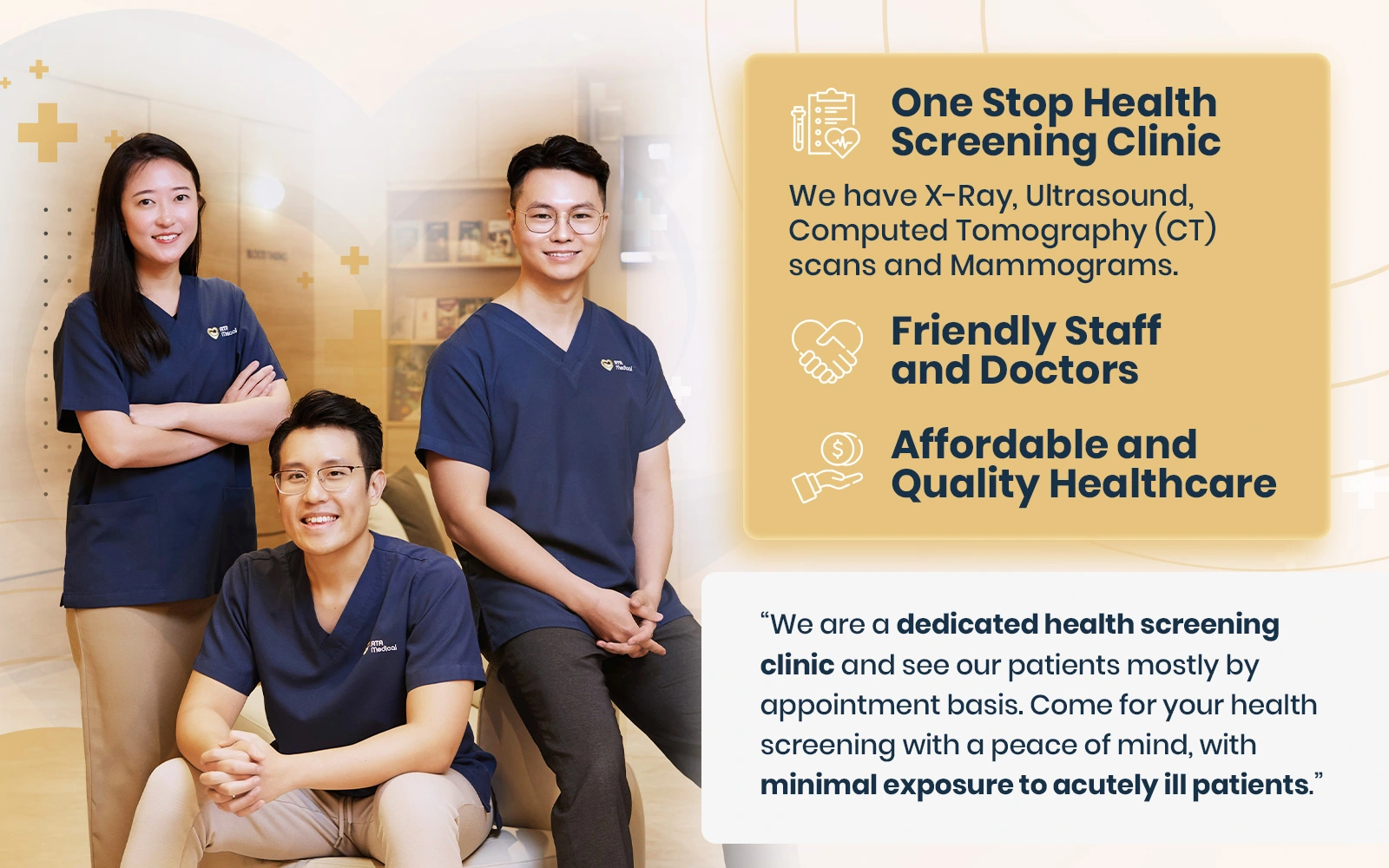What Is Polycystic Ovary Syndrome (PCOS)?
Polycystic ovary syndrome (PCOS) is a hormonal condition
that affects how the ovaries function. It often causes symptoms such as
irregular menstrual
cycles, higher levels of male hormones (androgens), and the
presence of multiple small cysts in the ovaries.
PCOS typically affects women of reproductive age and can impact
fertility, metabolic health, and long-term hormonal balance.
The term "polycystic" describes the presence of many small fluid-filled
sacs, called follicles, in the ovaries. However, not all women with PCOS
will have visible ovarian cysts.
PCOS is a long-term condition that currently has no cure. However, its
symptoms can often be managed through lifestyle adjustments and medical
treatment. Regular follow-up with your doctor is important to monitor your
symptoms, modify your treatment plan as needed, and help improve your
overall quality of life.

Polycystic Ovary Syndrome (PCOS) Causes
PCOS arises from a complex interaction of hormonal imbalances and genetic factors, with common contributing mechanisms including insulin resistance, elevated androgen levels, and low-grade inflammation.
- Elevated androgens – These hormones, often referred to as "male hormones," are present in small amounts in all women but can become abnormally high in PCOS, disrupting ovulation and contributing to symptoms.
- Insulin resistance – Reduced sensitivity to insulin, even in individuals without diabetes, can cause higher insulin levels, which may trigger increased androgen production.
- Low-grade inflammation – Some individuals may have persistent low-level inflammation that affects hormone regulation and may contribute to the condition.
- Genetics – PCOS often runs in families, suggesting that inherited factors may play a role in its development.
Polycystic Ovary Syndrome (PCOS) Symptoms
PCOS symptoms can differ from person to person but commonly include menstrual irregularities, excess hair growth, acne, and weight-related changes. Some individuals may also experience difficulties with ovulation and fertility.
- Irregular or absent periods – Often due to inconsistent or absent ovulation.
- Hirsutism – Excess hair growth on the face, chest, or back.
- Acne or oily skin – Commonly linked to elevated androgen levels.
- Weight gain or difficulty losing weight – Frequently associated with insulin resistance.
- Thinning hair or hair loss – Typically from the scalp.
- Fertility issues – Difficulty conceiving due to irregular or absent ovulation.
Not everyone with PCOS will experience all of these symptoms. Some individuals may only show one or two signs, which can make diagnosis more challenging.

What Are the Possible Complications?
If not properly managed, PCOS can increase the risk of long-term health complications, including metabolic, cardiovascular, hormonal, and psychological conditions.
- Type 2 diabetes or prediabetes – Insulin resistance, a common feature of PCOS, can impair the body’s ability to regulate blood sugar, increasing the risk of type 2 diabetes over time.
- Depression and anxiety – Hormonal fluctuations, persistent symptoms like acne or weight gain, and challenges with fertility can contribute to mood disturbances and reduced mental well-being.
- High blood pressure and cholesterol – Insulin resistance and weight gain associated with PCOS can affect blood pressure regulation and lipid levels, raising cardiovascular risk.
- Sleep apnoea – More common in individuals with obesity and PCOS, possibly due to hormonal and metabolic factors that influence airway function during sleep.
- Endometrial hyperplasia or cancer – Irregular or absent ovulation can lead to prolonged exposure of the uterine lining to oestrogen without progesterone, increasing the risk of abnormal thickening or cancer.
Early diagnosis and consistent management are important for reducing the likelihood of these complications and supporting long-term health.

Polycystic Ovary Syndrome (PCOS) Diagnosis
PCOS is diagnosed based on a combination of clinical symptoms, blood tests, and imaging, such as a pelvic ultrasound. A diagnosis is generally considered when at least two of the following features are present:
- Irregular or absent ovulation
- Elevated androgen levels (either based on symptoms or blood test results)
- Polycystic ovaries visible on an ultrasound scan
Other conditions that can present with similar symptoms, such as thyroid disorders or elevated prolactin levels (hyperprolactinaemia), are typically ruled out before confirming a diagnosis of PCOS.

Polycystic Ovary Syndrome (PCOS) Treatment & Management
Treatment for PCOS is tailored to the individual's symptoms, health goals, and whether fertility is a concern. It typically involves lifestyle changes, medications, and sometimes hormonal therapy.
| Treatment | Description & Purpose |
|---|---|
| Medication | |
| Oral Contraceptives | Used to regulate menstrual cycles and lower androgen levels, helping with symptoms like irregular periods and acne. |
| Anti-androgen Medications | Helps reduce symptoms such as excess facial or body hair and acne by blocking the effects of androgens. |
| Insulin-sensitising Medication | Improves the body's response to insulin, reducing insulin resistance and supporting ovulation. A commonly used example is metformin. |
| Ovulation-Inducing Medications | Used to stimulate ovulation in individuals with irregular cycles due to PCOS, with or without the goal of pregnancy. |
| Lifestyle Modification | |
| Healthy Eating | Involves a balanced diet with low glycaemic index foods to support weight management and reduce insulin resistance. |
| Regular Exercise | Enhances insulin sensitivity and supports healthy weight, which may help restore ovulation and improve symptoms. |
| Weight Management | Achieving modest weight loss (5–10%) can help regulate menstrual cycles and restore ovulation. |
| Fertility Support | |
| Ovulation Induction | Use of ovulation-inducing medications specifically to support conception when natural ovulation is absent or irregular. |
| Intrauterine Insemination (IUI) | Involves the use of medication to stimulate the ovaries to develop and release eggs, aiming to restore ovulation in individuals with irregular or absent menstrual cycles due to PCOS. |
| Assisted Reproductive Techniques | Advanced treatments like IVF that assist with fertilisation, recommended when other fertility methods are unsuccessful. |
PCOS Test & Treatment Cost
At ATA Medical, we provide diagnostic tests, oral treatments, and personalised medical guidance for managing PCOS. Our prices as follows:
| Test / Treatment | Price* |
|---|---|
| Consultation | From $49.05 |
| Hormone Tests | |
|
Amenorrhoea (Hormone) Profile 3 Testosterone, Estradiol (E2), Free T4, Thyroid Stimulating Hormone (TSH), Follicle Stimulating Hormone (FSH), Luteinising Hormone (LH), Prolactin This test is recommended for individuals with irregular menstrual bleeding and should be conducted between days 2 to 5 of the menstrual cycle for optimal results. |
$130.80 |
|
Female Acne / Weight Gain Screen** Testosterone, Estradiol, Progesterone, TSH, Cortisol, FSH, LH, Prolactin, DHEAS, SHBG This test is recommended for individuals with suspected hormonal acne and should be conducted between days 2 to 5 of the menstrual cycle for optimal results. |
$218 |
| Ultrasound | |
| Ultrasound Pelvis (Transabdominal / Transvaginal) | $272.50 |
| Treatment | |
| Oral Contraceptive Pill / Birth Control Pill | $43.60 (per box of 40 tablets) |
| Insulin-sensitising Medication | From $0.20 per tab |
| Appetite Suppressants | From $200 |
| Weight Loss Injections | $422.92 / box** |
^Prices last updated on Jan 28, 2026. While every effort is made to keep pricing information up to date, please contact our team to confirm the latest rates.
**One box contains 3 vials and each vial can last 6 days at maximum dose.
When Should You See a Doctor for PCOS?
You should consult a doctor if you notice symptoms that may indicate PCOS, such as:
- Irregular or missed periods
- Excess facial or body hair (hirsutism)
- Persistent acne or oily skin
- Thinning hair or scalp hair loss
- Difficulty conceiving
- Unexplained weight gain or difficulty losing weight
Early assessment can support symptom management and reduce the risk of future complications.
Why Choose ATA Medical?








Making a Difference Together
At ATA Medical, we strive to make a meaningful impact on every patient's health. With over 150,000 patients served, we are dedicated to fostering trust and enhancing well-being across our community.
Patients
Health Screening Tests
Corporate Screenings
Delivering Care Patients Appreciate
What to Expect
FAST RESULTS
We strive to deliver your results within 7 working days.
MINIMUM WAITING TIME
Our patient-oriented processes ensure your waiting time is kept to a minimum.
Friendly Service
Service is a top priority for us at ATA Medical.
Email Us at camden@atamed.sg
for More Information.
Book Your Health Screening With Us at 88770326.

